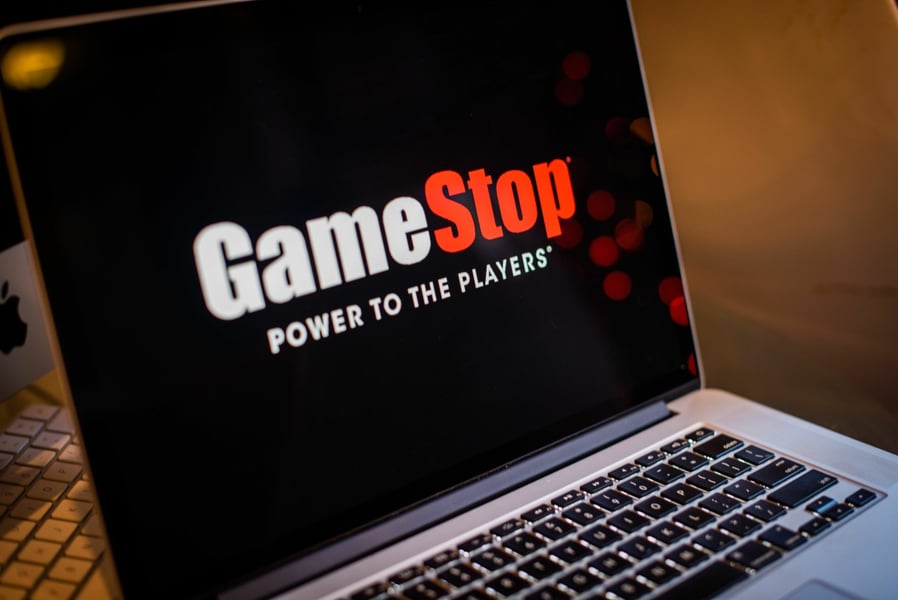

If Keith Gill, aka Roaring Kitty’s recent return to the spotlight were to inspire a sequel to “Dumb Money,” the Paul Dano starrer depicting his Reddit-fueled surge to fame, screenwriters might have to plug up a huge gap to make the plot work.
That gap, highlighted in a new Barron’s report, involves the amount of money Gill would have needed to purchase hundreds of millions of dollars’ worth of GameStop and Chewy shares, as suggested by the jaw-dropping positions he revealed in recent weeks on social media after a yearslong hibernation from the spotlight.
“It is kind of stunning, the amount of money that he put together,” Steve Sosnick, chief strategist of trading platform Interactive Brokers, remarked to Barron’s.
Gill first entered the public consciousness in 2021, when he stood at the forefront of an online retail army whose “diamond hands” lifted GameStop shares to stratospheric highs. By April 2021, his holdings of the stock had risen past $34 million, when he posted the last screenshot of his portfolio at the time on the WallStreetBets forum on Reddit.
It’s unclear when Gill sold those positions, if at all. Assuming he sold when GameStop shares peaked that June, he would have gotten more than $60 million, according to Barron’s – not even close to what he’d need for his latest tilt at the GameStop windmill.
“The question is, where did that guy get that money from?” Carson Block, the famed short seller, wondered aloud in a podcast he co-hosts.
Gill has attracted the attention of the Massachusetts Securities Division, which told the Wall Street Journal it’s looking into his recent trades as part of an “ongoing matter.” Leadership at the Morgan Stanley-owned E*Trade, which Gill uses, has also considered shutting down his account over concerns of potential Gamestop stock manipulation, according to the Journal.
According to screenshots Gill shared on Reddit on June 2, his portfolio included nearly $211 million in GameStop shares and options. Assuming he did sell out of GameStop in June three years ago, he still would have had to grow his payout by roughly 250 percent to hit that amount.
“It sort of defies the odds, but it’s possible,” Sosnick said to Barron’s.
Deepening the mystery further, Gill made a disclosure to the SEC on June 24 revealing he owned 6.6 percent of Chewy’s stock; by July that stake was worth more than $240 million. While he could have financed his Chewy bet with liquidated GameStop stock, that's not certain as he hasn’t updated followers on Reddit about his allocation to the video game retailer.
Peter W. Atwater, an economics professor at William and Mary, suggested that Gill could have used borrowed money, pointing out that his track record would make him an ideal borrower to certain deep-pocketed non-bank lenders.
“It wouldn’t surprise me that there are people eager to give him capital,” Atwater said to Barron’s.

It's a showdown for the ages as wealth managers assess its impact on client portfolios.

CEO Ritik Malhotra is leveraging Savvy Wealth's Fidelity partnership in offers to Commonwealth advisors, alongside “Acquisition Relief Boxes” filled with cookies, brownies, and aspirin.

Fraud losses among Americans 60 and older surged 43 percent in 2024, led by investment schemes involving crypto and social manipulation.

The alternatives giant's new unit, led by a 17-year veteran, will tap into four areas worth an estimated $60 trillion.

"It's like a soap opera," says one senior industry executive.
RIAs face rising regulatory pressure in 2025. Forward-looking firms are responding with embedded technology, not more paperwork.
As inheritances are set to reshape client portfolios and next-gen heirs demand digital-first experiences, firms are retooling their wealth tech stacks and succession models in real time.
